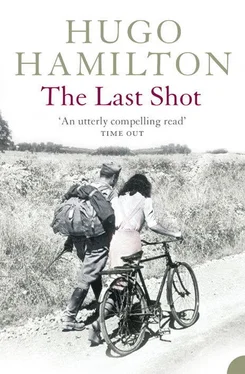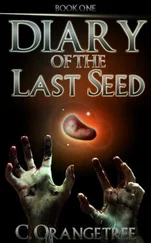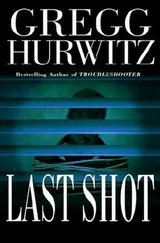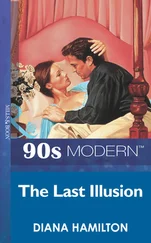Thank you for your letter. I will write to you what happened after you were here in Louny. The day after you left, two secret policemen came to me. I was asked who you were, where I had met you, what we had been speaking about. They wanted to know if you had a suitcase. They even asked me if I had not made a photograph of you! I had to lend them the books from which you got the information about the year 1945. They were distracted by two things: that you had been inside the communist headquarters and had seen its interior, and also why you had been so interested in the garrison in Louny. Perhaps they thought you was a terrorist or spy. Perhaps they wanted to get me. They had been waiting for the chance to take my job in the archives. So it was with us in Czechoslovakia till 17 November. Now it seems to be a joke, but it was not…
…Some words about Mrs Sekalova: she visited me. She was too sad and told me her life for communism had no sense. I remembered John Lennon and ‘whispered words of wisdom, let it be’.
I sent a further note asking him to let me know what happened to the communist headquarters. Some weeks later I got a note back saying the communists could not be dislodged despite two attempts at a people’s chain. I checked his address against an earlier letter and noticed that he had changed his address. He has moved, I thought. Instead of Lenivova 95, he was now at Praska 95. I wrote back and asked him if it was a new address. Maybe he just got rid of Lenin. I then began to realize that they had changed the names of the streets in Louny, just as they did when the Germans moved out in May 1945.
It was all behind them now.
Some days later, when Bertha and Franz had put sufficient distance behind them, they felt they could relax the pace a little. They had cycled mostly up-hill. In fact they had spent most of the time on foot, pushing the bikes along. The summer had come into its own. Sometimes they passed a field of rye or a bank of grass exploding with red poppies. And as they climbed higher into the Fichtel hills, they met more and more trees instead of fields. Walking with the bikes was sheer work in the heat. Sweat rolled into Bertha’s eyes.
At one point, around noon on another hot day, she was blinded by sweat and banged her foot against the pedal of her bike while walking beside it. She gashed an agonizing cut on her ankle. Bertha dropped her bike, sat down on the grass verge for a moment to hold her leg until the pain slowly receded.
Franz was a patient man. He came back and asked if she was all right. She got up again.
‘It’s nothing,’ she said. ‘When I think of what other people must have gone through.’
He held the bike for her. They moved on. She began to forget about her ankle. A thin trickle of blood had rolled down into her shoe and stopped. It became a thin, almost black, line as it dried in the sun.
Sometimes there was a short, swift down-hill ride through a cool forest. A quick spin which made her lightheaded, thinking she could cycle anywhere. By the end of the down-hill run, by the time the road climbed upwards again, she would be almost frozen, with goose pimples bursting through the sunburn on her arms. When she got off the bike, the heat attacked her again.
Once, going down-hill, she swallowed something. An insect. She tried to spit it out again, veered towards the bank of the road and almost crashed into the ditch.
Franz laughed when she told him. He said she was lucky, he hadn’t eaten yet.
They had little food left. Some bread, that’s all. They stopped at a farm where a large woman came out and gave them some fresh bread and lard. She explained that she had nothing else left; her store, or what was left of it, had already been emptied by passing refugees heading east. The woman warned about thieves and looters. She made some weak tea with sugar which Bertha and Franz drank by the gate while they ate the thick slices of bread. The woman was leaning out of the window asking them questions when she saw a band of strangers coming down the hill.
‘Polen,’ she whispered, urgently, and disappeared, shutting the window.
The group of men coming towards them along the road were no more than 200 metres away. Bertha and Franz were left with nothing to do but stand and see what would happen. Franz decided to act fast.
‘Bring the bikes around to the back of the house,’ he ordered.
‘But they can see us,’ Bertha said. ‘It’s no use, they’ll know.’
‘Take the bikes around to the back,’ he repeated through his teeth.
She brought the bikes around one by one while Franz stood at the gate, looking at the Polish exiles approaching. Bertha stayed at the back of the house. The tactic worked. Perhaps the passing Poles believed that they belonged to the house. Perhaps they were uninterested. Perhaps they knew they were close to the Czech border and could only hold their home country in mind. Perhaps it was sheer luck.
They passed by without a word.
Afterwards, the woman in the house came out and said she couldn’t believe it. She had been raided several times. There was nothing left in the house to take. She had also hidden some valuables. There was no law to protect her now, she said. She was not blaming the returning exiles. It was reparation, she said.
The woman told Bertha and Franz about other people in the area who were less fortunate. Another family not far from there had been terrorized by them and had everything taken. All of their family heirlooms were gone. A woman back in the direction of Eger had been beaten up in her home. Another old man who resisted the plunder had his arms broken.
Bertha felt safe with Franz. She was sure that he was clever and that his presence would eventually get her home. Later on, they met a soldier, a deserter who had spent three weeks in the woods. They gave him directions to get back to Bremen. Franz told him to go over Hof.
From time to time Bertha’s mind leaped forward to that moment when she herself would arrive home. She would have to send a message in advance to give them time to prepare for her arrival. Time to welcome her back to life. She had a recurring image of herself on the doorstep with her mother, her aunt, her sisters and the neighbours. Every minute of the journey was bringing her closer.
By evening, they reached a lake, a small lake in the hills. It was a remote place in the Fichtel hills where the population had thinned out to a few scattered houses. When they saw the lake surrounded by trees, they decided to stop. The sheer beauty of the place made Bertha plead with Franz to stay there for the night. Somehow, the urgency had receded. The race to get home could be postponed. The lake was set in the middle of a forest, far away from habitation. In the middle of nowhere. The middle of Germany.
They felt the peace of the surroundings. They heard those strange lulls in the forest where every bird decides to stop whistling at the same time and then start up again without notice. The sun, still warm, was beginning to sink over the tops of the trees beyond the lake. The insects took over the air.
Bertha wanted to swim. She looked forward to bathing properly for the first time in days and even had a small piece of soap left. It felt like the last piece of soap in Europe. By the time the sun and sky began to tint red, she had found an enclave where she could swim in complete privacy. She had the whole lake to herself.
Franz Kern was a decent man, she could assure herself. She could trust him not to spy on her. He was married. She felt she knew him well enough to trust him.
She removed all her clothes and placed them by a tree. She took only the soap with her. She had felt nothing so free and soothing as lake-water in years. It was so cool at first, it shocked her. Small clouds of soapy water drifted around her as she washed. She ducked her head down and washed her hair. She heard the silence of the lake underneath each time. A silence full of trout.
Читать дальше
Конец ознакомительного отрывка
Купить книгу












